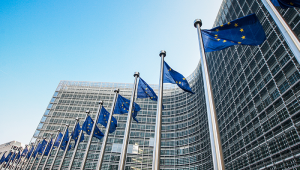By Nick Mann | 22 February 2012
Finance ministers from three European Union countries yesterday voted against formally signing off the EU’s 2010 accounts after they were qualified for the seventeenth year running.
UK Chancellor George Osborne was joined by his counterparts in the Netherlands, Jan De Jager, and Sweden, Anders Borg, in refusing to approve the accounts for the €141bn 2010 budget.
The error rate was 3.7% – up from 3.2% the previous year, and above the 2% which the three countries said was an ‘acceptable threshold’.
In a joint statement from the finance ministers’ meeting in Brussels, Osborne, Borg and De Jager said: ‘In these challenging times, member states should uphold the same high standards for the EU budget as they would for national budgets.
‘We should remember that national taxpayers stand behind the EU budget, and that's why we are calling for important and urgent improvements to the quality of EU financial management.’
Yesterday was the first time the UK has voted against the approval of the budget following its audit by the European Court of Auditors. Last year, the UK abstained in the vote on the 2009 budget, but demanded significant improvements in the level of errors.
Explaining that the credibility of EU spending depends on ‘orderly accounting’ of its expenditure, the three countries yesterday called on the European Commission to follow recommendations made by the Court of Auditors to improve the management of EU programmes and pursue ‘further simplicity of rules’.
Improving the quality of EU spending should be a given a high priority, they said, while member states must take full responsibility for putting in place ‘effective and efficient’ controls for managing EU funds at a national level.
Member states were encouraged to provide ‘full, transparent and accurate’ data as part of the summaries of EU spending, and make it publicly available in an accessible format.
And, the commission was told it should be stricter in applying sanctions to member states such as suspensions or interruptions of programmes.













